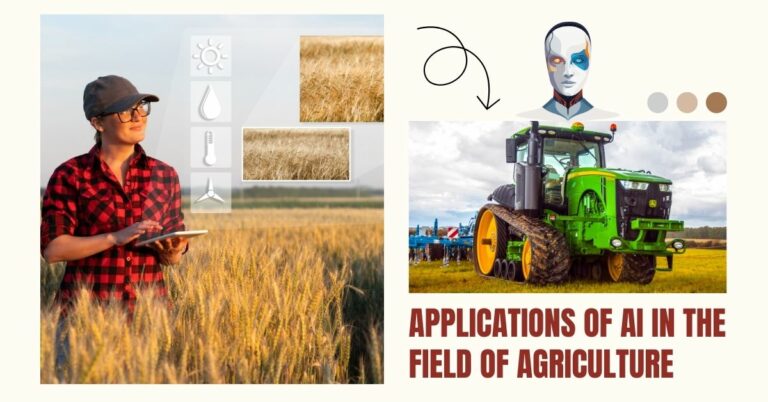
The ongoing advancements in the realm of Artificial Intelligence (AI) present boundless possibilities. Among the myriad sectors it has revolutionized, agriculture stands out as a domain where AI’s impact is profoundly reshaping practices and outcomes. In this post “Research Paper on Artificial Intelligence in Agriculture” We delve into the convergence of these two seemingly contrasting fields, and we discover a symbiotic relationship that promises increased productivity, enhanced sustainability, and a new era of agricultural intelligence.
For a complete guide also read about Artificial intelligence used in Agriculture dive into this link for exclusive insights and captivating discoveries!”
The Emergence of AI-Driven Agriculture
The rise of AI in agriculture is not a spontaneous phenomenon. It stems from the compelling need to address the mounting challenges of the agricultural sector. Global population growth, erratic weather patterns, and the pressing need for sustainable methods compel us to harness the power of AI to ensure food security.
Precision Agriculture: The Forefront of AI Innovation

Precision agriculture leverages AI to provide data-driven insights, allowing farmers to make more informed decisions. This approach uses various technologies, such as drones, IoT devices, and machine learning algorithms, to gather detailed insights about soil health, crop status, and pest infestation.
- Soil and Crop Monitoring: Advanced sensors and imaging techniques, combined with AI, enable real-time monitoring of soil health. These insights are invaluable for predicting crop yields and detecting potential diseases.
- Pest Prediction and Management: Machine learning models analyze vast datasets from previous agricultural cycles to predict pest attacks. When integrated with automated spraying systems, they can efficiently target affected areas, minimizing chemical usage and maximizing yield.
- Irrigation Management: AI-driven systems can analyze weather patterns, soil moisture levels, and plant water requirements to deliver the right amount of water at the right time. This not only conserves water but also promotes healthy crop growth.
Automated Farming: Beyond Human Capabilities

The advent of automated farming systems, empowered by AI, has transformed traditional farming practices. These systems perform a myriad of tasks without human intervention:
- Harvesting Robots: Leveraging computer vision and deep learning, these robots can identify ripe crops and harvest them with precision.
- Weed Control: AI-driven robots can differentiate between crops and weeds, ensuring that only weeds are targeted and removed, thereby reducing the reliance on herbicides.
- Disease Detection and Management: Advanced imaging and machine learning allow early detection of diseases, enabling timely interventions and minimizing losses.
AI in Supply Chain and Market Prediction

AI’s role isn’t restricted to the farm. It extends its capabilities to the broader agricultural supply chain. Predictive analytics enable farmers to anticipate market demands, ensuring they cultivate crops that are in high demand, reducing waste, and maximizing profits.
- Supply Chain Optimization: AI algorithms provide insights on the optimal routes and transportation methods, ensuring fresh produce reaches consumers swiftly.
- Demand Forecasting: By analyzing historical sales data and current market trends, AI can predict future demands, allowing farmers to align their production accordingly.
Challenges and Future Perspectives

While AI offers a plethora of benefits, it’s essential to acknowledge the challenges. Data privacy concerns, the high initial cost of AI systems, and the need to train farmers to use these technologies are some of the hurdles. Yet, as AI becomes more integrated and accessible, we can anticipate a future where these challenges are surmounted.
FAQs
The future of AI in agriculture promises precision farming, sustainable resource use, and enhanced crop yields.
AI in agriculture can lead to job losses, over-reliance on technology, and potential ecological imbalances.
American computer scientist John McCarthy is considered the founder of AI. He invented time-sharing and Lisp, as well as the phrase “artificial intelligence” in 1956.
AI enhances healthcare through early diagnosis, powers chatbots for customer support, and optimizes supply chains in industries.
Conclusion
In conclusion, in “Research Paper on Artificial Intelligence in Agriculture” the union of AI and agriculture heralds a new dawn for humanity. As we integrate more advanced AI-driven solutions into our agricultural practices, we inch closer to a future of abundant, sustainable, and intelligent farming.
Thanks!





